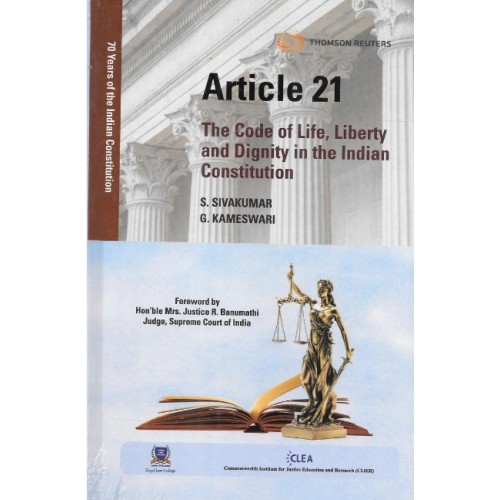In any democracy, it is the duty of the government to adopt appropriate measures to safeguard life by making laws to protect the lives of the country’s citizens. Article 21 of the Constitution of India thus embodies a value of supreme importance. Couched in negative language, the article states that no one shall be deprived of his life or personal liberty except according to the procedure established by law. From static, mechanical and purely literal interpretation of the article in Gopalan characterised as a ‘high water mark of legal positivism’ in 1950, there has been a transformation in the attitude of the apex court towards the protection of life and liberty especially after Maneka in 1978. Article 21, now regarded as the core of fundamental rights, has become a source of many substantive rights for the people. Article 21 is a detailed discussion of the evolution of various facets of the eponymous article over the last 70 years.
Thomson Reuters Article 21: The Code of Life, Liberty and Dignity in the Indian Constitution by S. Sivakumar & G. Kameswari
- Publisher: Thomson Reuters
- Book Code: 9789389891362
- Availability: 10
-
Rs1,050.00
Related Books
LexisNexis's Laws Relating to Liberty, Child Custody and Detention [HB] by Prashant Chandra
Laws Relating to Liberty, Child Custody and Detention provides readers with a detailed and comprehen..
Rs995.00


![Premier Publishing Company's Constitution of India by Dr. V. N. Tripathi [2 HB Volumes] Premier Publishing Company's Constitution of India by Dr. V. N. Tripathi [2 HB Volumes]](https://law-all.com/image/cache/catalog/data/Book Images/Premier Pub/2020/PPC026-175x175.JPG)
![LexisNexis's Laws Relating to Liberty, Child Custody and Detention [HB] by Prashant Chandra LexisNexis's Laws Relating to Liberty, Child Custody and Detention [HB] by Prashant Chandra](https://law-all.com/image/cache/catalog/data/Book Images/LexisNexis/2023/9789395116565-175x175.jpeg)